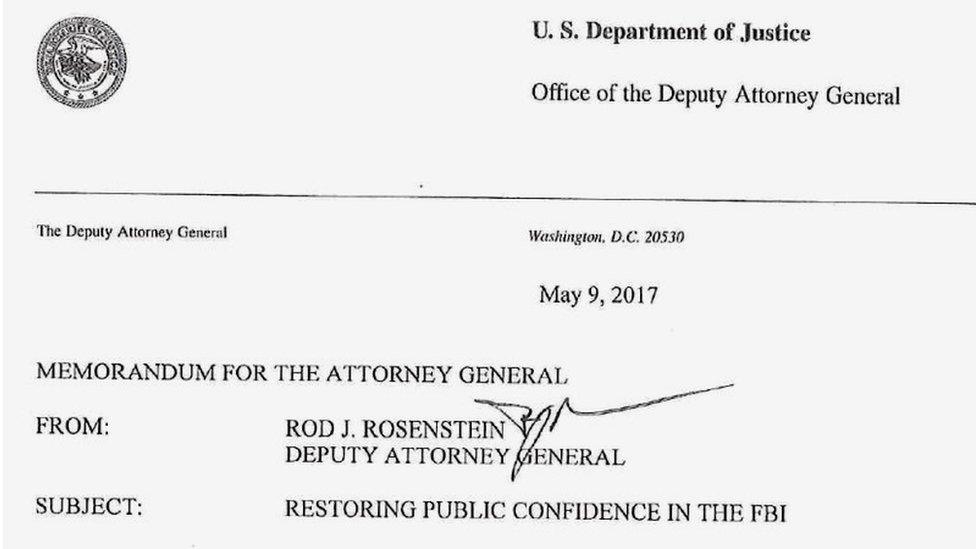Republican bid to impeach deputy attorney general founders
- Published
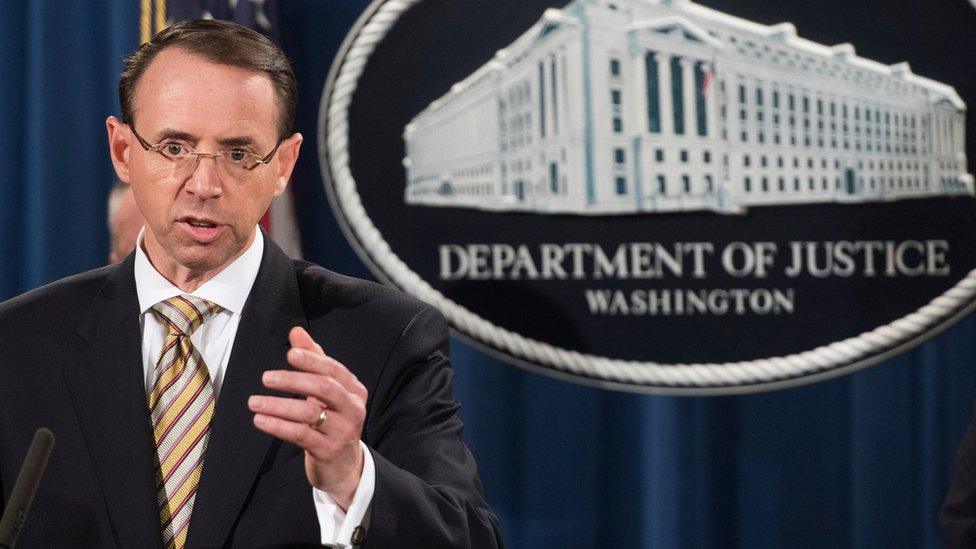
US Deputy Attorney General Rod Rosenstein
A top Republican says he opposes a plan within his party to impeach the Department of Justice official overseeing the Russia inquiry.
House Speaker Paul Ryan's brush-off to an impeachment bill introduced by a small group of conservative Republicans makes it even more of a longshot.
Mr Ryan said he opposes the bill as Rod Rosenstein has not committed "high crimes and misdemeanours".
Republicans accuse Mr Rosenstein of stonewalling requests for information.
The House of Representatives departed on Thursday for a five-week recess after Mr Ryan declined to schedule a vote on the bill.
Attorney General Jeff Sessions - Mr Rosenstein's boss - said in a speech in Boston on Thursday he has the "highest confidence" in his deputy.
Mr Rosenstein has overseen the investigation into whether there was any obstruction of justice by Trump campaign aides or collusion with Moscow, since Mr Sessions recused himself last year.
The articles of impeachment, which were filed by 11 conservative Republicans on Wednesday evening, accuse Mr Rosenstein of failing to comply with requests for documents relating to the Russia inquiry.
"Rod Rosenstein has been in charge of the Department of Justice as the agency has made every effort to obstruct legitimate attempts of congressional oversight," Congressman Mark Meadows said in a statement.
At a weekly news conference, Mr Ryan - who is stepping down at the end of his term - said Mr Rosenstein's actions do not rise to a level that would warrant impeachment under the US constitution.
"I don't think we should be cavalier with this process or with this term," Mr Ryan said.
On Thursday, Ohio Republican Congressman Jim Jordan - who backed the bid to oust Mr Rosenstein - announced his intention to replace Mr Ryan as House Speaker.
House Democratic leader Nancy Pelosi criticised the effort as an attempt to derail the Russia investigation.
"Hopefully saner minds will prevail on the Republican side," she said.
Impeachment of Mr Rosenstein is seen as highly improbable because it would have to be approved by a majority in the House and backed by two-thirds of the US Senate for a conviction.
Back in May as Republicans began discussing the idea of impeachment, Mr Rosenstein was defiant.
"I think they should understand by now, the Department of Justice is not going to be extorted," he said.
What is the Russia investigation?
Special counsel Robert Mueller is investigating whether President Trump's campaign team colluded with Russia to influence the outcome of the presidential election.
In 2016, US intelligence agencies concluded that Russia had used a state-authorised campaign of cyber attacks and fake news stories planted on social media in an attempt to turn the election against Hillary Clinton.
Thirty-two people have now been indicted, including four members of Mr Trump's campaign team and 25 Russians.
Both Mr Trump and Russia have denied the allegations, with Mr Trump repeatedly describing the investigation as a "witch hunt".
- Published13 July 2018
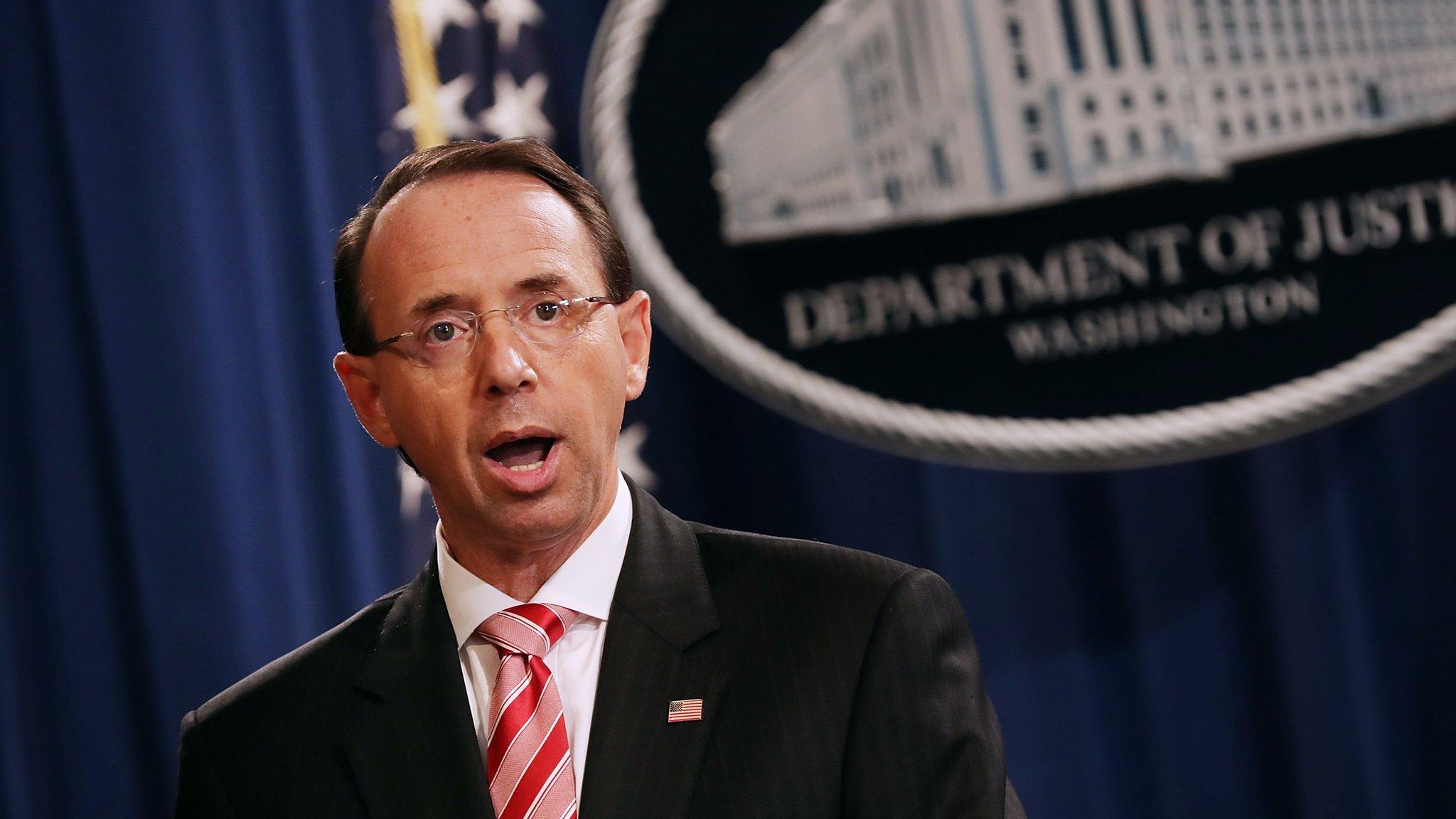
- Published18 May 2017
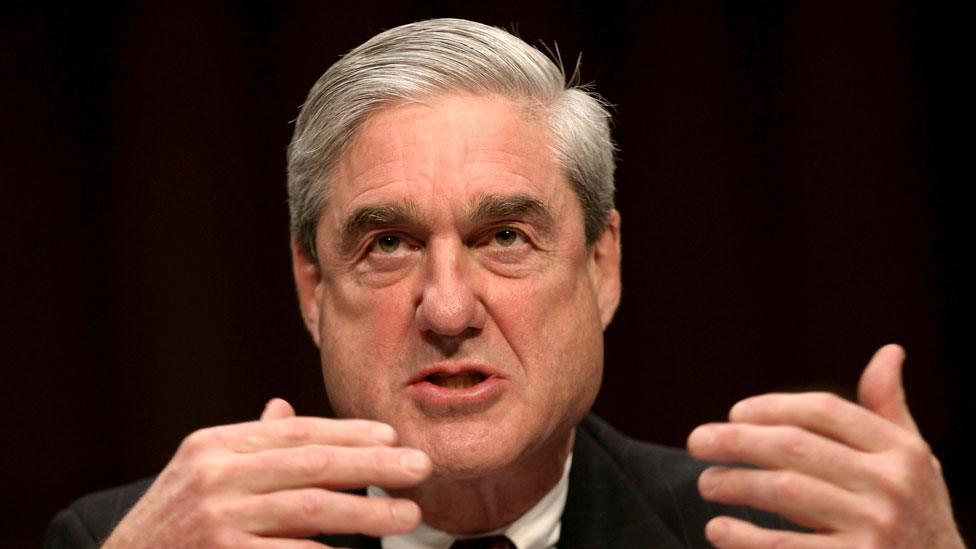
- Published11 May 2017
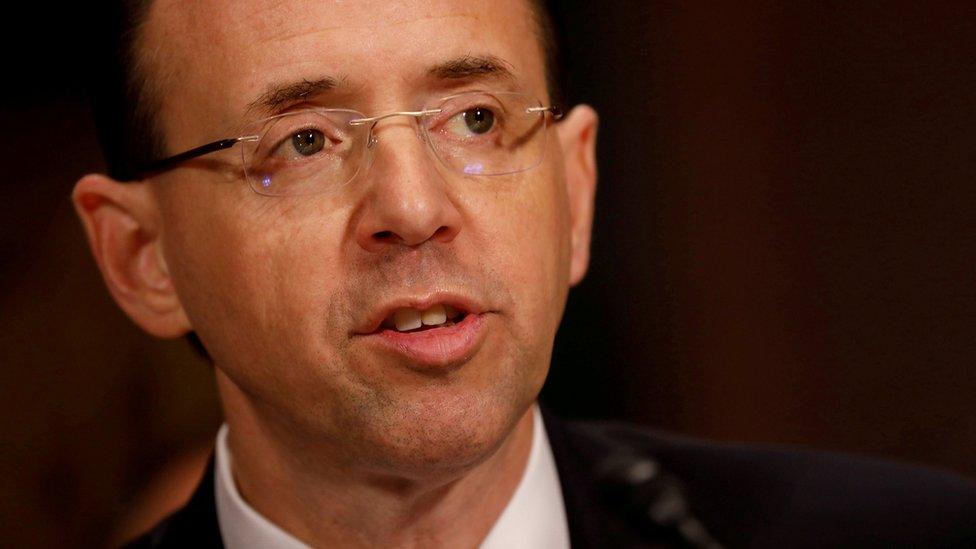
- Published10 May 2017
